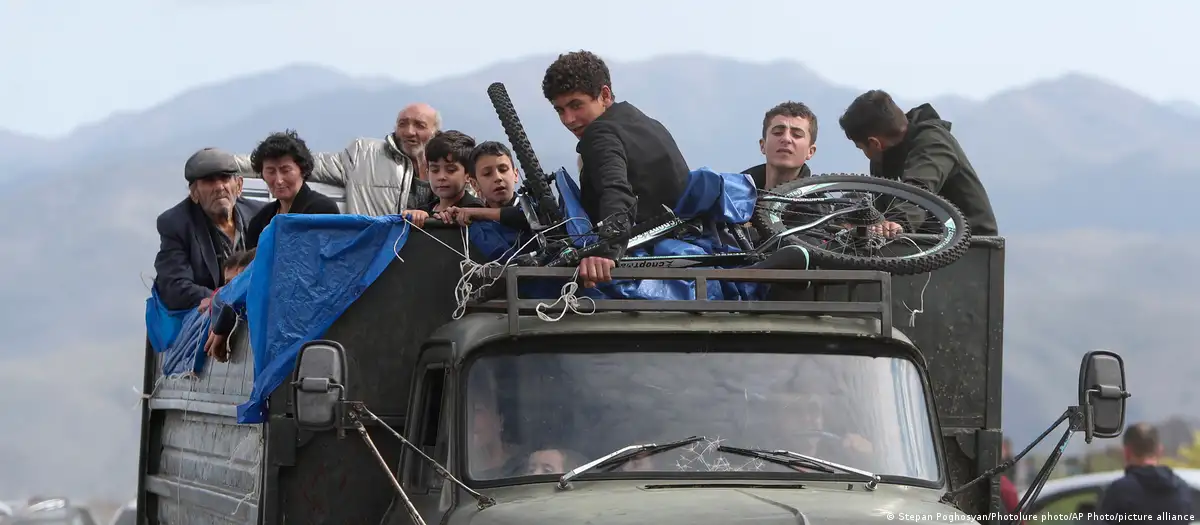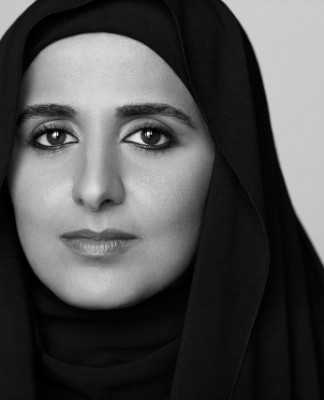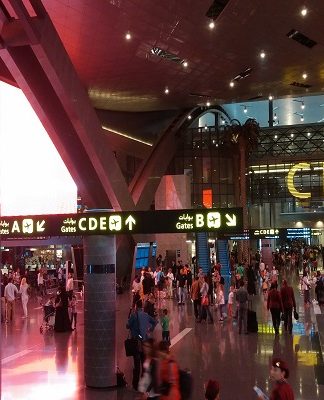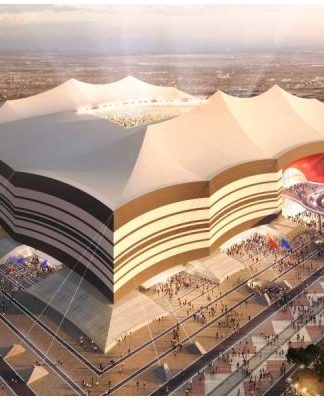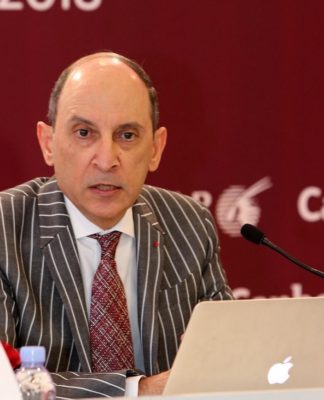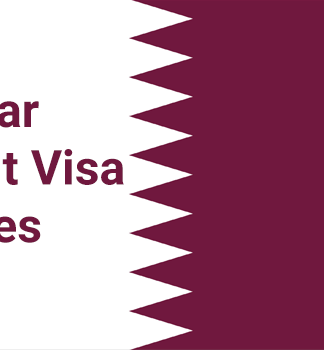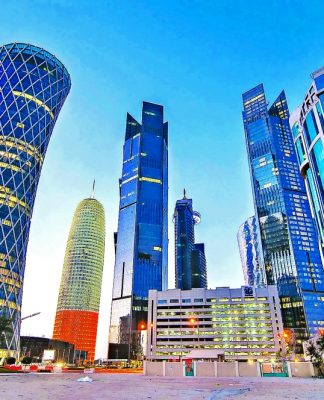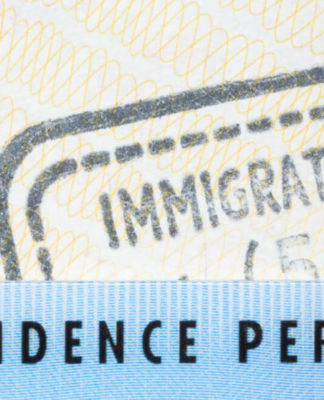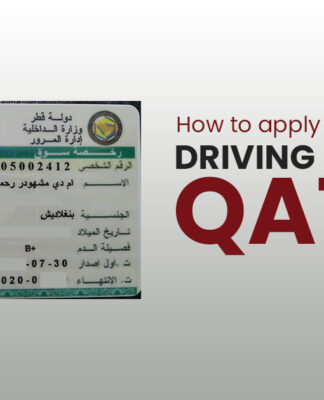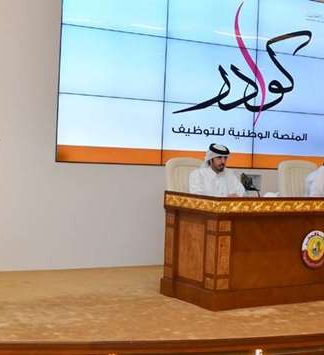CONFLICTSAZERBAIJAN
Nagorno-Karabakh: ‘Republic’ to be dissolved by January 2024
Published 3 hours agoPublished 3 hours agolast updated 1 hour agolast updated 1 hour ago
The breakaway region of Nagorno-Karabakh will cease to exist by January 1, 2024, the self-declared government of the unrecognized republic announced after it was recaptured by Baku.
https://p.dw.com/p/4WtRI
Ethnic Armenians from Nagorno-Karabakh ride a truck on their way to Kornidzor in Syunik region, Armenia, as thousands flee the region after Baku took control last week
More than 60,000 people or half of Nagorno-Karabakh’s residents have fled to ArmeniaImage: Stepan Poghosyan/Photolure photo/AP Photo/picture alliance
Skip next section What you need to know
WHAT YOU NEED TO KNOW
Nagorno-Karabakh’s separatist President Samvel Shakhramanyan signed a decree declaring that the unrecognized republic will cease to exist by January 1, 2024.
Ethnic Armenian fighters last week agreed to dismantle its force and lay down weapons after Baku retook control of the territory.
Tens of thousands of Armenians have already fled the enclave, seeking shelter in Armenia.
Here are the main headlines concerning Nagorno-Karabakh on Thursday, September 27:
Skip next section Armenian authorities, refugees ‘face huge challenge’
1 hour ago1 hour ago
Armenian authorities, refugees ‘face huge challenge’
In an interview with DW, Olesya Vartanyan of the International Crisis Group says refugees from Nagorno-Karabakh face the challenge of starting anew in a place “very distinct” from where they used to live, while Armenian authorities, already struggling just to register tens of thousands of people, must find a way to integrate them.
Armenian authorities, refugees ‘face huge challenge’
05:56
https://p.dw.com/p/4Wu3P
Copy link
Skip next section Armenian PM urges world leaders to do more in face of ‘ethnic cleansing’
2 hours ago2 hours ago
Armenian PM urges world leaders to do more in face of ‘ethnic cleansing’
Armenian Prime Minister Nikol Pashinyan urged the world to pay heed to what he called “ethnic cleansing” in the region.
“If the condemnation [by the international community] is not followed by adequate political and legal decisions, then these condemnations become acts of agreement with what is happening,” Pashinyan told members of his cabinet.
He said failure to act to protect the people of the enclave would amount to complicity against the plight of those forced to flee their homes.
EU leaders urged the protection of civilians in a statement Tuesday, saying it was critical for international groups to have access to the enclave and transparency “on Baku’s vision for Karabakh Armenians’ future in Azerbaijan.”
Samantha Power, the head of the US Agency for International Development, also said Tuesday that Washington will provide $11.5 million (€10.9 million) in humanitarian assistance to Armenian civilians in Nagorno-Karabakh.
https://p.dw.com/p/4WtZs
Copy link
Skip next section Armenia says more than half of Nagorno-Karabakh population fled
3 hours ago3 hours ago
Armenia says more than half of Nagorno-Karabakh population fled
Armenia says more than 65,000 people have left the Nagorno-Karabakh enclave within Azerbaijan — more than half of the region’s estimated 120,000-strong population.
Armenian Prime Minister Nikol Pashinyan said all ethnic Armenians would leave the region “in the coming days.”
Ethnic Armenians have been living in the enclave for centuries.
“This is an act of ethnic cleansing of which we were warning the international community about for a long time,” said Pashinyan.
Nagorno-Karabakh was officially recognized as being part of Azerbaijan since the Soviet Union’s collapse in 1991. No country, including Armenia, recognized the self-declared republic’s independence.
Armenian separatists had been in control of the region since a war in the 1990s that claimed tens of thousands of lives.
Half the population of Nagorno-Karabakh flees
03:13
https://p.dw.com/p/4Wthh
Copy link
Skip next section Former leader of region charged with financing terrorism
3 hours ago3 hours ago
Former leader of region charged with financing terrorism
Azerbaijan charged the former head of Nagorno-Karabakh’s separatist government with financing terrorism.
Ruben Vardanyan, who formerly led the government of the self-declared republic, was arrested on Wednesday.
Ruben Vardanyan detained by Azerbaijani security officers on September 27Ruben Vardanyan detained by Azerbaijani security officers on September 27
Ruben Vardanyan detained by Azerbaijani security officers on September 27Image: State Border Service of Azerbaijan/Handout/AFP
Vardanyan was accused of illegally crossing the Azerbaijani border, creating illegal armed formations and financing terrorism and was placed in pre-trial detention.
The billionaire, who made his wealth in Russia, was arrested while trying to enter Armenia on Wednesday morning and was subsequently taken to the Azerbaijani capital Baku.
He had moved to Nagorno-Karabakh in 2022 where he served as the head of the self-declared republic for several months, before stepping down earlier in 2023.
https://p.dw.com/p/4WtX9
Copy link
Skip next section Nagorno-Karabakh to dissolve itself
3 hours ago3 hours ago
Nagorno-Karabakh to dissolve itself
The self-declared government of Nagorno-Karabakh announced that it will dissolve itself and the unrecognized republic will cease to exist by January 1 2024.
A decree to that effect was signed by the region’s separatist President Samvel Shakhramanyan.
The document cited an agreement reached last week to end the fighting under which Azerbaijan will allow the “free, voluntary and unhindered movement” of the region’s residents and disarm ethnic Armenia troops in the enclave in exchange.
Nagorno-Karabakh was recaptured by Azerbaijan after a lightning military offensive last week that forced ethnic Armenian fighters of the region to lay down weapons.
The region is internationally recognized as Azerbaijani territory, but Armenia and Azerbaijan have long fought over it.
The two, both former Soviet republics, went to war over the region between 1988 and 1994 as Armenians in the region sought to break away from the newly independent nation of Azerbaijan.
Armenian fighters won the first war that ended in 1994. But during a six-week war in 2020, Azerbaijan ended that control and Baku retook most of the region.
rm/ab (AP, Reuters, dpa, AFP)














